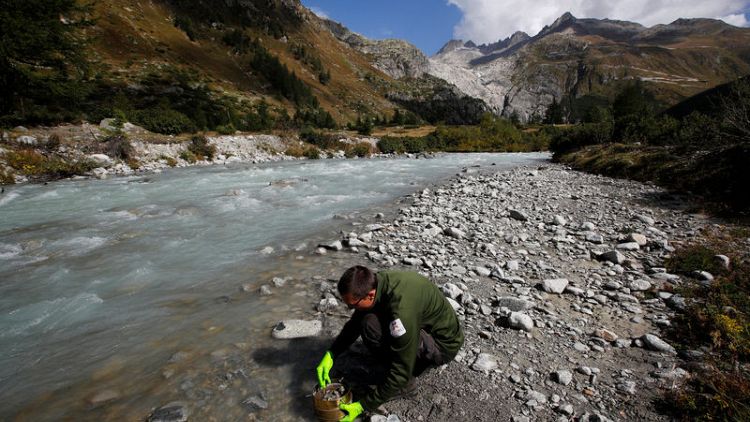FURKA, Switzerland (Reuters) - A team of scientists has embarked on a four-year quest to discover what beyond water the world loses when glaciers melt.
By poring over microorganisms they find in glacier-fed streams, researchers from the Swiss Federal Institute of Technology Lausanne (EPFL) hope to better understand how these creatures have adapted to their extreme environments.
"It's time for us to find new ways to face this unprecedented environmental change," said Tom Battin, academic director at EPFL who will coordinate the project and lead the research, speaking to reporters by the Rhone glacier now covered with reflective white sheets to help slow its melting.
"What is very important now in science is that we start to work across the boundaries of different disciplines. Too often and too rapidly we go from glacier loss to sea level rise. What happens in between is unknown," he said.
Researchers will travel to the world's largest mountain glacier systems, collecting microorganisms from hundreds of glacier-fed streams and analysing their genomes. The work will take them to streams in Alaska, the Himalayas, the Andes, Greenland, Scandinavia, Pamir, Kamchatka, Caucasus, New Zealand and the European Alps.
Glaciers and their streams were once abundant, but are vanishing as a result of climate change. Glaciologists predict that half of the small glaciers in Switzerland will disappear within the next 25 years.
The same holds true for their glacier-fed streams and the ecosystems they support.
(Reporting by Denis Balibouse; writing by Michael Shields; Editing by Alison Williams)
